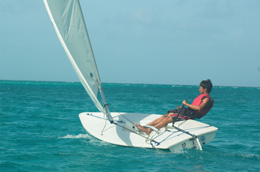Often, when we learn a new language, the first words we learn are the swear words. This was true for me with Spanish – as a kid, when my dad worked on the family car, I learned all sorts of fantastic Spanish words. Perhaps he believed that if he swore in a different language, his impressionable little ones wouldn’t pick up on it.
Oh, but we did.
With French, though, it was different. I began studying French when I was 28 with the sweetest, most patient French professor ever. (Madame Loiseau – merci pour tout!) I didn’t give much thought to enriching my vocabulary in that direction; I needed to say “hello” and “goodbye” and “sorry about that, I’m a huge klutz.”
A year later, while living in Paris and attending a French immersion program, I spent mornings before school watching Inside the Actors’ Studio, broadcast in English with French subtitles. The host, James Lipton, always wrapped up the show by asking each actor he was interviewing the same five questions, one of which was, “What is your favorite curse word?”
Thus, I learned the good stuff.
The funny thing, though, is it all sounds like nonsense to me. A lot of these words have no direct translation, and since I don’t always know the connotation and I’m not used to hearing them used, I don’t have a good feel for how vulgar or tame they really are. Merde, for example, is somewhere on the scale between “crap” and “shit.” A kid will get in trouble for saying it, but an adult throwing it into normal conversation, even in a French class, will at most garner a few giggles. The word putain is listed in my French/English dictionary as “whore” or “goddam” or “bloody” if you’re British. But actually it’s France’s equivalent of the “f” word.
Enter my brother-in-law. I adore my brother-in-law. But sometimes, when he talks, I wonder if I really do speak French at all. He uses so many colloquialisms and slang words, plus he mumbles, so I can hardly follow what he’s saying. And – he’s got a potty mouth.
I learned some new words from him on a trip to France a few years ago. A woman walked off the train with his suitcase when he came from Lyon to Antibes to visit us one weekend. Several hours later, she called him to let him know about the “mix-up.” When he hung up his phone, he said, or rather yelled, “Grosse Conne!” Literally, it translates to “huge idiot.” No big deal, right?
Back in Paris a few weeks later, we were joking with my brother-in-law about the incident, and I mimicked the way he had yelled at his closed cell phone. I didn’t quite yell it, but I said it loud enough that my mother-in-law came running into the room in a state of panic and cried, “C’est Carol? Ce n’est pas possible!” (“Was that Carol? It couldn’t be!”) I suddenly felt like I was a misbehaving twelve-year-old. So I did what any twelve-year-old would do: I blamed it on someone else. “He taught it to me.” Turns out grosse conne is quite a bit more vulgar than “huge idiot.” Which is impossible to know unless you spend time around native speakers and embarrass yourself several times. I try to take the safe route – I want to know these words and phrases so I can tell if I’m being insulted, but I tend to not say them.
Except for merde. I like that one.
[Full Disclosure: This was originally published on my author website in 2008]











